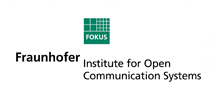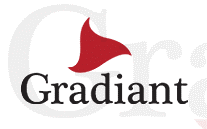Academic Member Listing
Illinois Institute of Technology VoIP Lab
Although experimentation dates as far back as 1973, transmitting voice calls over computer networks didn’t emerge as commercially viable until the year 2000, and since then it has expanded dramatically. Voice over Internet Protocol, or VoIP, is a technology with huge potential, and IIT’s VoIP Lab at the Center for Professional Development is at the forefront of VoIP development. Through partnerships with many major industry players, the VoIP Lab has developed projects in every aspect of this new technology, such as VoIP security, impaired-hearing support and 911 emergency compliance.
VoIP is one of the fastest growing technologies in the telecommunications industry, and experience in the VoIP Lab at CPD gives graduates a tremendous career advantage. VoIP Lab students and alumni are currently developing next-generation technologies for companies such as Alcatel-Lucent, Motorola and Cisco.

Fraunhofer FOKUS
The Fraunhofer Institute for Open Communication Systems FOKUS in Berlin has been researching and developing communication and integration solutions for partners in industry, research and public administration in the fields of telecommunication, automotive engineering, eGovernment and software development.
The Fraunhofer Institute for Open Communication Systems FOKUS researches and develops demand-orientated solutions in the fields of:
- communication technologies and services and their interoperability
- architectures and protocols of future communication networks and platforms
- interactive technologies for individual and community applications
- integration of processes and IT systems in eGovernment
- methods for automating and optimizing software and system development in the fields of telecommunication and automotive engineering
- measuring and testing of distributed telecommunication and software systems
Fraunhofer FOKUS supports innovative processes from the original concept to the (pre)product in companies and institutions – amongst others in the fields of telecommunication, automotive engineering, eGovernment and software development. Solutions developed by FOKUS and its partners are tried out, tested and demonstrated in laboratories.
With an expertise of more than 20 years, Fraunhofer FOKUS sees itself as a link between university research on the one hand and industry and public administration on the other.

Columbia University — Fu Foundation School of Engineering & Applied Science
A unique educational opportunity, Columbia University’s Fu Foundation School of Engineering and Applied Science (SEAS) offers programs to both undergraduate and graduate students who undertake a course of study leading to the bachelor’s, master’s, or doctoral degree in engineering and applied science.
Combining the advantages of small programs with the extensive resources of a major research university, students at the School pursue their academic interests under the guidance of outstanding senior faculty members who teach both undergraduate and graduate level courses.
The Fu Foundation School of Engineering and Applied Science occupies three laboratory and classroom buildings at the north end of the campus, including the Schapiro Center for Engineering and Physical Science Research. Because of the School’s close proximity to the other Morningside facilities and programs, Columbia engineering students have ready access to the whole of the University’s resources.
Comprising multiple programs of study, with facilities specifically designed and equipped to meet the laboratory and research needs of both undergraduate and graduate students, the School is the site of an almost overwhelming array of basic and advanced research installations, from the Columbia Center for Electron Transport in Molecular Nanostructures to the Columbia Genome Center.

University of Glamorgan — ICRC – Faculty of Advanced Technology
The Faculty of Advanced Technology covers many subject areas including Engineering, Environmental Technology Construction and Management, Electronics and Computer Systems Engineering, and Computing and Mathematical Sciences.
The Faculty of Advanced Technology has approximately 120 full-time academic staff and 165 research students. In the 2001 Research Assessment Exercise, Computer Science was given a Grade 4 rating and Glamorgan is among the top six new universities in the UK for this subject. This submission included significant contributions from Mechanical and Electrical Engineering and Mathematics, confirming the international standing of research across the Faculty. In addition, Civil Engineering was confirmed to be of national standing, underlining the importance research has within the Faculty.
The Faculty has excellent industrial links, working with Fujitsu, IBM, British Telecom, Orange, Welsh Assembly Government, Network Rail, Ordnance Survey and ESRI. We have a proud tradition of collaboration with the commercial sector through projects supporting technology transfer and applied research work. The Faculty has state-of-the-art teaching and research facilities, the result of a recent multimillion pound investment programme.
There are 14 Research Units within the Faculty and they reflect the diverse and interdisciplinary nature of the Faculty. Many of the Research Units are acknowledged to be of international standing.
Our projects are funded through the EPSRC, ESRC, NERC, the Nuffield Foundation, EU Framework 5 and 6, WDA and other European sources, industrial partners such as Ordnance Survey and Local Authorities.
Research students usually undertake part-time duties which provide additional income. Research opportunities are also available part-time and by portfolio. Opportunities exist for engineering postgraduate students in particular to engage in commercial research and consultancy activities, to cover part of the costs of their research programmes. The Faculty has successfully implemented a policy of awarding its most able postgraduate researchers post-doctoral fellowships, providing them with a stepping stone into a higher education lecturing career.
Spin-out technology companies from the University of Glamorgan have been set up by groups of postgraduate students. For example, Geo-Bureau Ltd, a navigation and tracking software development company, and totalGI Ltd, a Geographical Information Systems (GIS) and digital mapping company.

Texas A&M University — Telecom
From humble beginnings in 1876 as Texas’ first public institution of higher learning, to a bustling 5,000-acre campus with 46,000-plus students and a nationally recognized faculty, Texas A&M University is one of a select few universities with land-grant, sea-grant and space-grant designations. With an enrollment of about half men and half women, 25 percent of the freshman class are the first in their family to attend college and 8,500 are graduate students. Texas A&M has two branch campuses, one in Galveston, Texas, and one in the Middle Eastern country of Qatar.
This research-intensive flagship university with 10 colleges was recently ranked first in the nation by The Washington Monthly for “tangible contributions to the public interest.” U.S. News and World Report ranked Texas A&M third nationally as a “best value” among public universities. Many degree programs are ranked among the top 10 in the country.

GRADIANT
The Galician Research and Development Centre in Advanced Telecommunication (GRADIANT) was founded in December 2007 by eleven companies of the ICT Galician sector (Arantia, Arteixo Telecom, Egatel, Gsertel, Indra, Ineo, R, Telefónica, Televés, Tredess y Tele2 Comunitel), the Consellería de Industria da Xunta de Galicia (Regional Industry Ministry of Galicia Regional Government) and the three Galician universities (A Coruña, Santiago and Vigo). 51% of GRADIANT foundational capital is private, taking the legal formula of “nonprofit private foundation.
GRADIANT was born from the expertise of two leader research and transfer groups from the Higher Technical School Of Telecommunication Engineering of Vigo, from the Department of Signal Theory and Communications and the Department of Telematic Engineering as well. Both research groups have received the consolidatedhallmark from the Galicia regional government (Xunta de Galicia), being the only Galician ones who have received it within the Telecommunications sector.
For more information about Gradiant’s lines of research in digital communications and applications and networks, please visit the Gradiant website.

Georgtown University Department of Computer Science
Georgetown University’s Department of Computer Science consists of ten full-time faculty working in the areas of algorithms, artificial intelligence, bioinformatics, database systems, data mining, information assurance, information retrieval, machine learning, and non-standard parallel computing.
Georgetown University is a National Center of Academic Excellence in Information Assurance Education (CAEIAE), a program administered through the Georgetown Institute for Information Assurance (GIIA).
For undergraduate students, the computer science department offers three academic programs: Bachelor of Science (BS), Bachelor of Arts (BA), and Minor.
The BS is the department’s most technical undergraduate offering, designed to prepare students for careers in industry or for advanced study in computer science. Finally, the minor and its basic courses on programming, mathematical methods, and data structures lets students supplement and strengthen their major requirements.
For graduate students, the department offers Master of Science (MS) and Doctor of Philosophy (Ph.D.) degrees. The MS lets students further develop their technical skills and concentrate in areas of their choosing. Two external electives give students the ability to broaden their studies to disciplines such as linguistics, psychology, international affairs, and biostatistics. A thesis option exposes students to research in preparation for careers in applied research or further study at the doctoral level.
The Ph.D. program prepares students for research and teaching careers in academia and for research and technical careers in industry and government. It is a full-time program that consists of completing the requirements for the Master’s program, taking doctoral seminars, passing a comprehensive exam, writing and defending a proposal for research, conducting that research, and writing and defending a dissertation describing the investigation.

